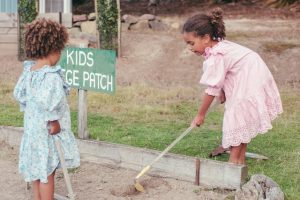Getting to Know the Age Range and Structure of Key Stage 1
A crucial question: ks1 what years? Key Stage 1 (KS1) is a critical phase of your child’s education, spanning the ages of 5 to 7 years old in the United Kingdom. It builds upon the foundations laid in the Early Years Foundation Stage (EYFS) and focuses on developing essential skills across various subjects. Understanding the age range and structure of KS1 is vital for both parents and educators.
When children begin KS1, they are eager to explore and learn, showing a growing sense of independence. They become more skilled at communication and develop basic numeracy and literacy skills. The education structure in KS1 covers subjects like English, mathematics, science, art, design and technology, history, geography, and physical education.

During KS1, we prioritise fostering creativity, problem-solving, and social interaction. We encourage children to develop their reading and writing abilities, gain a solid understanding of numbers and mathematical concepts, and explore the world around them through science and humanities.
By understanding the age range and structure of KS1, parents and educators can provide appropriate support and tailor activities to meet the developmental needs of children in this stage. Nurturing a love for learning, fostering curiosity, and creating a stimulating environment will help children thrive through Key Stage 1.
Essential Milestones and Developmental Expectations in Key Stage 1
Key Stage 1 (KS1) marks a significant period in your child’s educational journey, covering ages 5 to 7 years in the United Kingdom. During this phase, children achieve essential milestones and meet developmental expectations as they progress academically and socially. Recognising these milestones can assist parents and educators in effectively monitoring and supporting children’s growth.
In KS1, children make notable progress in literacy and numeracy. They develop phonics skills, become proficient readers, and write more fluently and creatively. Mathematically, they establish a solid foundation in addition, subtraction, and basic problem-solving.
Furthermore, social and emotional development is paramount during KS1. Children learn to work collaboratively, follow instructions, and confidently express their thoughts and ideas. They form friendships, acquire conflict-resolution skills, and become more independent.
By the end of KS1, children are expected to demonstrate a solid grasp of core subjects, including English, mathematics, science, and others. They should be able to communicate effectively, solve simple problems, and show a growing awareness of the world around them.
Recognising these key milestones and developmental expectations enables parents and educators to provide appropriate support and guidance to help children thrive in KS1. Children can reach their full potential during this critical stage by celebrating achievements, fostering a positive learning environment, and offering tailored activities.
Moving from the Early Years Foundation Stage to Key Stage 1
Transitioning from the Early Years Foundation Stage (EYFS) to Key Stage 1 (KS1) is a significant milestone in your child’s educational journey. It marks the progression from play-based learning to a more structured and formal approach. Understanding this transition and supporting children during this period is crucial for their continued growth and development.

Moving from EYFS to KS1 involves adjusting to a more structured learning environment. Focused lessons emphasising literacy, numeracy, and foundational knowledge in various subjects gradually complement play-based activities.
Communication and collaboration between early years providers, parents, and primary schools are vital to facilitate a smooth transition. Sharing relevant information about your child’s learning styles, strengths, and areas for improvement helps teachers tailor their approach and provide appropriate support.
Supporting children emotionally is equally essential during this transition. Encouraging open dialogue, addressing anxieties, and familiarising children with their new learning environment can help alleviate concerns.
Engaging children in activities that bridge the gap between EYFS and KS1 can also be beneficial. Introducing structured learning opportunities, such as reading books with simple sentences or practising basic math skills, can help children become more comfortable with the expectations of KS1.
Aligning Homeschooling Plans with Key Stage 1 Years
Homeschooling provides a unique opportunity for parents to actively participate in their child’s education, particularly during the crucial Key Stage 1 (KS1) years. Aligning homeschooling plans with the specific years in KS1 involves carefully considering curriculum objectives, learning outcomes, and age-appropriate activities.
When designing homeschooling plans for KS1, it is crucial to cover core subjects such as English, mathematics, science, and humanities. Familiarising yourself with the national curriculum and its objectives for KS1 ensures that your child stays on track with their peers in mainstream schools.
Adapting teaching methods to suit the homeschooling environment can be advantageous. Combining textbooks, online resources, educational games, and hands-on activities can make learning engaging and effective.
Creating a structured schedule with dedicated time slots for different subjects helps establish routine and discipline. However, allowing for flexibility and incorporating breaks and recreational activities is equally important to maintain a balanced approach.
Tailoring the pace of learning to your child’s individual needs is a significant advantage of homeschooling. If your child demonstrates advanced abilities in certain areas, you can introduce additional challenges while providing extra support for subjects that require more attention.
Regular assessments and evaluations are crucial to gauge your child’s progress and identify areas for improvement. Utilising diagnostic tests, projects, and interactive discussions can help monitor learning outcomes effectively.
Exploring Cross-curricular Connections in Key Stage 1 Education
Key Stage 1 (KS1) education offers a valuable opportunity to explore cross-curricular connections, fostering a holistic and integrated learning experience for young children. By linking subjects together, children can develop a deeper understanding of the world and make meaningful connections between different areas of knowledge.
In KS1, subjects such as English, mathematics, science, art, history, geography, and physical education can be interconnected to create a more engaging and comprehensive learning environment.

For example, a project on animals and their habitats can involve researching and writing about different species (English), measuring and graphing their sizes and populations (mathematics), understanding their natural environments (science), creating artwork inspired by their characteristics (art), and exploring the geographical regions they inhabit (geography).
By integrating subjects, children gain a more comprehensive understanding of concepts and develop essential skills across different disciplines. They learn to draw upon their knowledge from one topic to solve problems and explore ideas in another.
Moreover, cross-curricular connections promote critical thinking, creativity, and problem-solving abilities. Children are encouraged to make connections between seemingly unrelated topics, fostering a more holistic approach to learning.
Teachers and parents can collaborate to create cross-curricular activities and projects that align with curriculum objectives while providing opportunities for interdisciplinary exploration. By encouraging children to see the interconnectedness of knowledge, educators can nurture a love for learning and help them develop transferable skills that extend beyond individual subjects.




